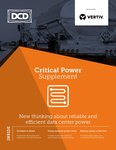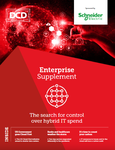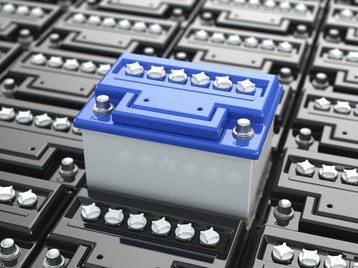Is it human nature to always want the newest, most modern thing? Or is it marketing? Most likely, it is a bit of both. Either way, it is an unwise way to make decisions.
It should never be about the newest option, but the best. It is just as important to remember that what constitutes ‘the best’ is entirely subjective, situational, changeable and any other of the countless adjectives that really just mean uncertain.
It is because of this that C&D Technologies disputes the attitude that many have taken toward the lead-acid battery, a technology we have relied upon for years.
“Lead-acid technology has been around for a very long time, and because of that, it is instantly viewed as old. Lead-acid technology is not old. The reason why it has withstood over 100 years is that it's a good technology, and there's still room to continue to improve and develop that technology,” says Erick Soares, senior product manager of UPS and Renewables at C&D.
“Of course, when you have Lithium-ion and other technologies coming on, which admittedly do offer a lot of benefits, people want the shiny new thing. It's new, therefore it must be better. But that is not exactly true.”
Of course, in many cases new will be better. As a technical industry, we are always looking to innovate and progress. But progression is not linear. Technologies are not evolving like apes to humans. They are branching off and finding new purposes, developing in themselves, or being replaced by alternatives. It’s not simply a case ofthe newest solution is the best solution.
When it comes to batteries, a key misconception surrounds sustainability. There is a perception that newer batteries such as lithium-ion are more sustainable than traditional lead-acid. But according to Soares, this is not the case.
“It goes back to education. There is a lack of education on recyclability and the circular economy. The fact is that lead-acid batteries are more sustainable than some of the other ‘sustainable’ technologies that may be available right now.
“You can have batteries that range from three-year to 20-year life spans, maybe even 40 to 50 years depending on the design. But at the core, a lead-acid battery is at least 98 percent recyclable, and out of that 98 percent, you can reuse at least 85 percent of that back into a battery.
“There are very few other products and markets in the world that can claim the same level of recyclability for batteries. If you go to a smelter and you have an operation, you can get paid to properly dispose of and recycle lead-acid batteries. Whereas with lithium-ion you have to pay for someone to properly dispose of them.”
Recyclability is no doubt a key aspect of sustainability, but with thisin mind, does that mean you should choose lead-acid batteries? Well, no. But it does mean you should consider them.
For Soares, it is a cost-benefit analysis when it comes to choosing your UPS.
“[Lead acid] can fit anywhere, it really depends on your specific application. What's driving you: Is it sustainability? Are you in a county where you might have a bigger issue with fire? Are there potential regulations that might not allow you to pursue other technologies?
“You have to lay everything out on the table, and figure out what makes more sense for you as a customer. Is it better to have a smaller footprint? Is it better to have a more sustainable battery? Is it better to have a battery that's going to last longer?
“Or maybe it's really all about price, and the need to pay the least amount of money now, knowing that you might have to replace them more often. It is a case-by-case scenario, and there are certain situations that are better for specific technologies. But for none of them should you automatically rule out lead-acid.”
Find out more about the misconceptions about lead-acid batteries in the DCD>Talk
More from DCD
-

Critical Power Supplement
New thinking about reliable and efficient data center power
-

The Enterprise Supplement
The search for control over hybrid IT spend
-

Hybrid IT: The best of both worlds
Why having the best of both worlds could be the best way forward


